- Home
- Franklin W. Dixon
The Hooded Hawk Mystery Page 3
The Hooded Hawk Mystery Read online
Page 3
“I don’t know if he’s the one, Joe. You’ll have to identify him. But he certainly fitted your description!”
Smuff led the boy into a small room. A sun-tanned figure slouched on a bench. When the man saw Joe, he jumped up.
“Am I glad you’re here,” he said with a slight Italian accent. “I went to your house and looked for the lawn mower, and this cop took me down here for I don’t know what!”
Joe grinned. “Sorry, Nicolo. It’s a case of mistaken identity!”
Nicolo looked at the policeman defiantly. “See? I told you!”
“Nicolo is our gardener,” Joe explained to Smuff. “He comes every week to cut the lawn.”
Smuff shrugged and apologized to the man.
“That’s okay,” Nicolo said when he heard about the hawk thief. “Now can I go back to work?”
Since it was nearly lunchtime, the boys drove Nicolo to the Hardy home. As Joe carried the falcon toward the back door, Mrs. Hardy appeared and said:
“Please don’t bring the hawk into the house. It will only upset your Aunt Gertrude.”
Frank took the hawk to its perch in the garage, set the burglar alarm, and locked the door. He had just sat down at the table for lunch when Joe appeared, carrying a volume of the encyclopedia with him.
“It says here, ‘Most hawks, peregrines especially, require a bath,’ ” Joe read. “‘The end of a cask, sawed off to give a depth of six inches, makes a good tub. Peregrines which are used to “waiting on” require a bath at least twice a week.’ ”
“‘Waiting on’! You certainly do have to wait on them!” Aunt Gertrude retorted.
Frank and Joe exchanged grins, then told their aunt what the term meant. Frank read on from the book in his brother’s hands. “‘If the bath is neglected, the falcon is inclined to soar when flown, and may even break away in search of water, and so be lost.’ ”
Miss Hardy cleared her throat with a loud harrumph, which ended further conversation about the hawk.
After lunch the boys made a cask tub for the falcon and let her bathe. Then they laid plans for beginning their work on the case Mr. Hardy had outlined for them.
“My guess is,” said Frank, “that anyone smuggling immigrants into the country would probably do it after dark. Let’s take the Sleuth out in the bay this evening and scout around for a few hours.”
“Good idea,” Joe agreed. “But remember, Miss Peregrine has to go along.”
About seven-thirty the boys changed to old pants and sweaters, then hurried to the garage. Joe put on the gauntlet and signaled for the hawk to come to his wrist. When the bird was in place, he hooded it, and Frank drove to their boathouse.
After climbing aboard the sleek motorboat, Joe attached the bird’s leash to the jesses on her legs and set her on a short horizontal pole in the wheel cabin, which was intended for raincoats and jackets. The bird accepted the roost readily.
Moments later Frank had the Sleuth under way. As the craft knifed smoothly through the water, the boys were pleased to see that the falcon remained quiet. Presently Joe asked:
“What kind of boat do you think we ought to look for out here?”
“I surmise that the smugglers would come close to the twelve-mile limit in a large boat,” his brother replied. “Then they contact the shore and make arrangements to have the immigrants transported the rest of the way in a speedboat.”
“Sounds logical,” Joe agreed.
Feeling a drop of rain, Joe looked up at the sky. In the distance he spotted a pigeon flying toward land. Grabbing binoculars, he trained them on the bird. Frank, too, had seen the pigeon. Both boys wondered if it were a carrier.
“Suppose we let the hawk bring it down on the beach,” Joe suggested.
“It might help us more to know where the bird is going, so we can locate the owner,” Frank asserted. “Get the pigeon’s direction, Joe.”
He handed his brother a pocket compass. Joe balanced it on his hand, and compensating for the bobbing of the speedboat, studied the movements of the settling needle carefully.
Frank and Joe were well aware that carrier pigeons’ actions are fairly predictable. When turned loose at their departure point, they fly straight up into the air, circle, pick up the beam to their home cote, and set off in a straight line.
By the speed and assurance with which the pigeon overhead was flying, the boys were convinced that it was making a beeline for home. When the bird was finally out of sight, Joe remarked :
“The pigeon was heading straight southwest. The question is, How far inland is it going?”
“We have a starting point for our search, anyway,” Frank commented. “Hey, that pigeon at Chet’s farm was headed in a southwest direction, too.”
“Right. And now, with a possible clue to the smugglers’ mainland hideout, let’s do a bit of aerial sleuthing.”
“First thing tomorrow.”
Presently Frank turned the wheel over to Joe. He was just about to head into the ocean when Joe said:
“We have company.”
A deep-sea fishing cruiser was coming toward them from the open sea. Frank picked up the glasses and read the name Daisy K. The Hardys recognized this as a weather-beaten sports fishing craft used for charter trips. It was frequently tied up in Bayport. But they knew nothing about its owner.
“Think she’s suspicious?” Joe asked.
“Take a look at the sailor leaning over the rail on the starboard side,” Frank urged excitedly.
As the Daisy K approached, Joe adjusted the glasses and peered at the heavy-set, dark-skinned man, who had piercing black eyes. Both of the man’s hands were resting on the rail, and at first glance he appeared to be just a tired sailor relaxing after a long, wearing day’s work.
“What do you think, Joe?”
“Same as you do.”
For a reason they could not explain, the boys felt sure that this was the mysterious masked man who had tried to steal the falcon! But on neither of his hands was the telltale ruby ring. In a moment the Daisy K had passed the Sleuth.
“I don’t suppose,” said Joe, “that we ought to suspect every sun-tanned stranger. I have a funny feeling, though, that he is our man. Shall we follow him?”
“We haven’t a shred of evidence against the fellow, Joe—and anyway, we know where to find him if we want him. I’d rather keep looking out here for clues to the smugglers.”
“Okay.”
It was choppy on the open sea, and as darkness settled, the wind grew strong.
“I guess we’d better go back,” Frank proposed. “The waves are getting pretty high and I don’t think Miss Peregrine likes it!”
The hawk was finding it hard to retain her perch and finally Frank took the bird on his wrist. “Too bad we couldn’t continue our sleuthing,” he remarked. “But then, it would be impossible for us to get near another boat on a night like this.”
About half an hour later the Hardys nosed the Sleuth into the slip of their boathouse. Frank set the falcon back on her pole perch, and had just closed the door behind them when there was a low rumble in one corner of the boathouse. The next instant there came a blinding flash, followed by a sharp explosion that rocked the building!
A sheet of flame roared up the walls and across the boathouse directly toward the Sleuth!
CHAPTER V
Indian Intrigue
STUNNED, the Hardys could see no escape from the flash fire which had trapped them in their boathouse. As the initial shock wore off, Frank cried:
“Open the door, Joe!”
The youth swung it up as Frank gunned the boat’s motor. The Sleuth shot backward into open water a split second before the fire reached its prow.
“Whew!” said Joe. “Sabotage!”
His brother nodded as he docked nearby. Joe quickly fastened the hawk’s leash to a rowboat painter while Frank grabbed a fire extinguisher from the Sleuth. Both boys raced back to their boathouse.
Behind them, the boys could hear a watchman shout, �
��What’s wrong over there?”
“Fire!” Frank yelled. “Give us a hand!”
One glance around the boathouse told the Hardys that a single fire extinguisher would do little good. Nevertheless, Frank played it around until it was empty.
Joe ran outside and called the fire department from a public phone. Then he looked for some clue to the fire’s origin. Near the side door he noticed a small wad of newspaper on the floor. He put it into his pocket.
At that moment the watchman ran up with a hand line from a nearby hydrant, and the blaze was soon extinguished. But the boathouse was badly damaged.
The Bayport fire engines turned into the waterfront street. When the chief discovered that things were under control, he sent his men back but remained himself to talk to the boys.
“How did the fire start?” he asked.
“There was an explosion,” Joe replied and told what had happened. After a quick inspection, the chief agreed that an arsonist was responsible.
When the fire chief had left and the watchman had returned to his shack, Joe pulled the wad of paper from his pocket. “This might tell us something,” he said to Frank. “But it’s too dark to read here.”
The boys went to their boat and got a flashlight. To their amazement they saw that the printing was in a strange, oriental-looking script.
“It might have been printed in India,” Frank said, “and if so, one of the smugglers could have set the fire.”
“There’s one man who can tell us if you’re right,” Joe reflected. “Ahmed.”
“Think he’ll be up this late?”
They decided that it would be worth a try. As they were about to leave, Joe suddenly halted and exclaimed, “Wait! We almost forgot the hawk!”
While he went to retrieve the falcon, Frank made arrangements with the watchman to leave the Sleuth at another dock. Then they drove to the small bungalow where Ahmed lived. The house was brightly lighted. They rang the bell, and the rug dealer admitted the boys and their falcon. He led them into an attractive living room, furnished in oriental style.
Frank and Joe took turns supplying Ahmed with the details of their exploits. Frowning in concern, he spread the sheet of newspaper on a bronze table. He scanned the lines closely, then turned to his callers.
“It is part of a story which reports that Tava, the son of Satish Nayyar, a well-known industrialist from the Province of Hatavab where I come from, will visit the United States. The boy is eighteen and is to finish his education in this country. Satish Nayyar is one of the richest men in India and has a reputation of being a great humanitarian as well. Incidentally, the dateline on this paper is Delhi, two months past.”
Ahmed glanced over the rest of the newspaper but found nothing in any of the other items that could be interpreted as a clue to the identity of the arsonist.
Frank asked, “How many persons around Bayport would be likely to read a newspaper from India?”
“A dozen, perhaps. I have six men from Delhi working for me, and there must be an equal number employed on the fishing boats in the vicinity.”
“Thank you very much, Ahmed,” Frank said, rising. “This information may shed some light on our case.”
The Hardys said good night, returned to their car, and headed for home.
They were up early the next morning. After breakfast Frank telephoned a builder, who agreed to start repairing the boathouse shortly. Then Frank called the local airport and found that they would have to postpone their aerial search for the smugglers’ hideout, since the helicopter pilot was busy for the rest of that day.
Later that morning, Frank and Joe had a conference with Chief Collig about the fire and left the sheet from the Delhi newspaper with him. The chief promised to look into the matter.
“Joe,” Frank said as they left police headquarters, “if we’re going to use our hawk to help solve the mystery, we’d better do some more practicing.”
“Right. Let’s go out to Chet’s after lunch.” The Hardys decided to walk and carry the bird, since this would give the falcon an opportunity to become accustomed to them. Frank hooded Miss Peregrine as Joe picked up the falconer’s bag, and they started out.
The boys talked all the way, knowing that it was important for the falcon to become familiar with their voices and thus obey them more promptly. By now, she came readily to either boy’s fist for food, as well as to the lure.
When they arrived at the Morton farm, Mrs. Morton told them that Chet had gone to town but was expected back soon. They left a message for Chet to join them, and immediately set off for the isolated spot where they would release the falcon. There, Joe unhooded the bird and removed the leash. He then directed her attention to several crows which were flying over a clump of trees and threw her off.
Instinct seemed to warn the crows, however, for almost as soon as the falcon had left Joe’s glove, they flew into a thicket. The hawk circled for a while, then climbed upward into the sky until she appeared no larger than a swallow.
“Maybe we’re going to lose her,” Joe said, worried.
“I don’t believe so,” Frank reassured him. “She’s ‘waiting on,’ expecting us to flush more suitable quarry for her to strike.”
“Well, we’ll give her some,” said Joe, taking the lure from the falconer’s bag and waving it.
“She’s coming back!” Frank cried.
Both boys watched a tiny speck hurtling toward them, growing larger by the second. In a long, graceful swoop the falcon came in and struck the lure with a smack. Joe held it firmly and the hawk came to rest. He offered her some raw meat, then hooded her and set the bird on his wrist.
Just then Frank spotted Iola Morton running toward them. When she reached the Hardys, she paused for breath, then blurted out:
“Your father’s home! He’s been trying to reach you. Something important has come up about your new case !”
Surprised to learn that their father was back so soon from Washington, the boys dashed to the Morton house and called home.
“What’s up, Dad?” Frank asked excitedly.
“I’ve just received a phone call from Mr. Ghapur. He’s coming here from Washington with a friend from India who has a strange story to tell us.”
“What is it?”
“The matter was too confidential to discuss over the telephone, Frank. The men will arrive tonight. I thought you boys would want to be on hand.”
“We’ll be there,” Frank promised.
As Frank put down the phone, Chet appeared with a huge container of ice cream. Frank told Chet of the meeting to be held at the Hardy home that evening.
“Maybe it’s about our rubies,” their stout friend suggested.
As dinnertime approached, Chet drove the Hardys and their falcon home in his jalopy.
“Let me know what happens, fellows,” he called, waving good-by.
Fenton Hardy was waiting. “Our callers will arrive about nine o’clock,” he said.
Night had closed in and they were waiting for the front doorbell to ring, when a knock sounded on the back door. The boys and their father hurried to the kitchen and Fenton Hardy opened the door. Two men were standing there.
“Mr. Ghapur!” the detective exclaimed.
“We thought we were being followed,” the importer explained, stepping in. “Please pardon this strange way of entering your home.”
Rahmud Ghapur was a dark-complexioned man, about fifty years old, with lines at his temples that indicated a normally jovial disposition. Right now, however, his expression was tempered by the seriousness of the situation. His companion, about ten years younger, was introduced as Mr. Delhi, a trusted emissary and cousin of Satish Nayyar.
Ghapur added that the Indian, who retained a high government post, had assumed the name Delhi because he wished to remain incognito while in the United States.
“My real name is Bhagnav,” Mr. Delhi said.
Mr. Hardy shook hands with him and introduced his sons. “We’ll go up to my study,” he
said, “where we can be sure that our discussion will not be overheard by possible eavesdroppers at our doors or windows.”
He led the way to the second floor. After everyone was seated, Frank offered to bring the falcon to Mr. Ghapur, but the man advised against it.
“If the bird were to see me,” he said, “the fine progress you have made with her might be undone.”
Ghapur turned to his companion. “Please tell your story,” he requested.
Mr. Delhi began with a question. “Had you heard that Tava Nayyar was on his way to the United States in order to complete his education?”
“We learned it last night from a newspaper clipping,” Frank replied, and told of their ad venture in the boathouse.
“He arrived in New York all right,” Mr. Delhi went on. “Then he was kidnapped!”
“Kidnapped!” chorused the Hardys, and Joe added, “When?”
“About a month ago. Ransom was demanded in rubies. We received orders to leave the gems in a certain place in India. The orders were carried out and the rubies picked up. But Tava has not been released.”
“You haven’t heard anything?” Frank asked.
“Oh, yes. We have received a new ransom note which demands that more rubies be left at the designated spot. The note, like the first one, threatens Tava with death if payment is not made or if the story of his kidnapping is published.”
Mr. Delhi paused. “I—I I am afraid Tava may not even now be alive,” he said somberly. “But his father has not given up hope.”
Rahmud Ghapur picked up the story. “Satish Nayyar sent Mr. Delhi to this country to see if he could track down the kidnappers. Since I am a native of the same province, he came to me for help. I suggested that we get in touch with you. Can you and your sons look into this matter for us?”
“We’ll be glad to,” Fenton Hardy assured them. “In fact, my boys may have picked up a clue already.”
“Yes? How so?” both visitors asked in amazement.
Frank and Joe told them of the precious rubies from the carrier pigeon brought down by the hawk.
The Indians were astounded to hear this news and agreed that the rubies might very well be part of the ransom. They thought, too, that the missing youth might be held at the place from which the pigeon had been released or where it was heading.

 The Great Pumpkin Smash
The Great Pumpkin Smash Who Let the Frogs Out?
Who Let the Frogs Out? Return to Black Bear Mountain
Return to Black Bear Mountain A Treacherous Tide
A Treacherous Tide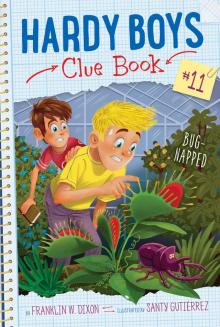 Bug-Napped
Bug-Napped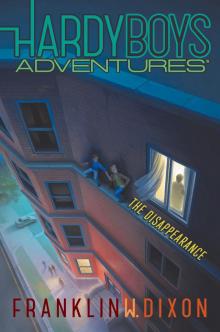 The Disappearance
The Disappearance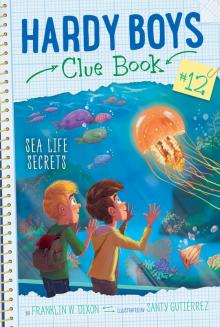 Sea Life Secrets
Sea Life Secrets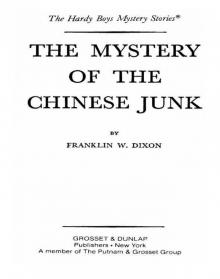 The Mystery of the Chinese Junk
The Mystery of the Chinese Junk A Skateboard Cat-astrophe
A Skateboard Cat-astrophe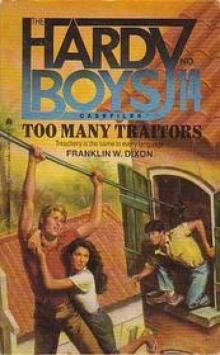 Too Many Traitors
Too Many Traitors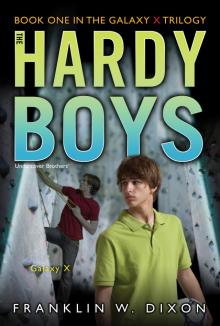 Galaxy X
Galaxy X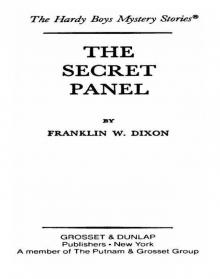 The Secret Panel
The Secret Panel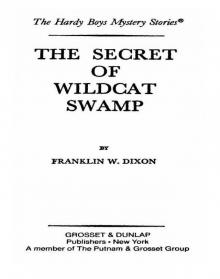 The Secret of Wildcat Swamp
The Secret of Wildcat Swamp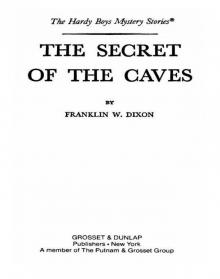 The Secret of the Caves
The Secret of the Caves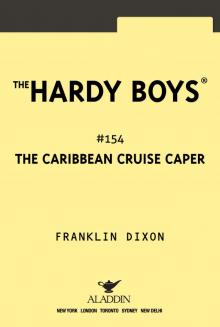 The Caribbean Cruise Caper
The Caribbean Cruise Caper Without a Trace
Without a Trace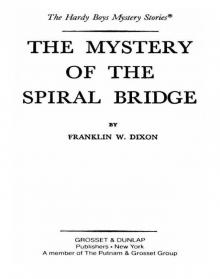 The Mystery of the Spiral Bridge
The Mystery of the Spiral Bridge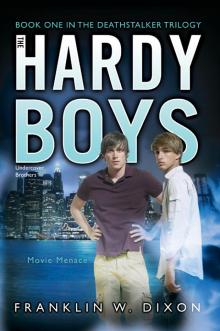 Movie Menace
Movie Menace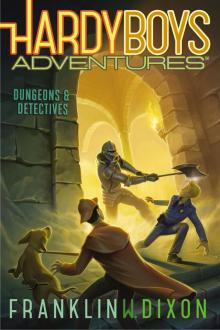 Dungeons & Detectives
Dungeons & Detectives Water-Ski Wipeout
Water-Ski Wipeout The Case of the Psychic's Vision
The Case of the Psychic's Vision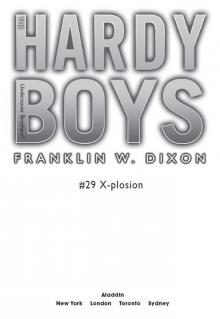 X-plosion
X-plosion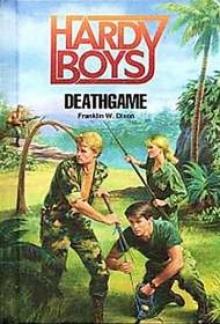 Deathgame
Deathgame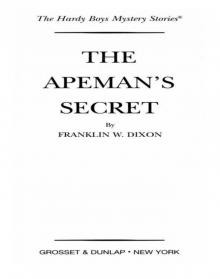 The Apeman's Secret
The Apeman's Secret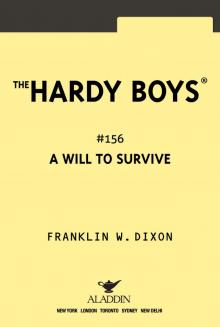 A Will to Survive
A Will to Survive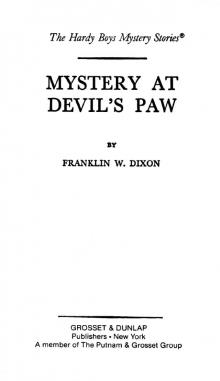 Mystery at Devil's Paw
Mystery at Devil's Paw Blood Money
Blood Money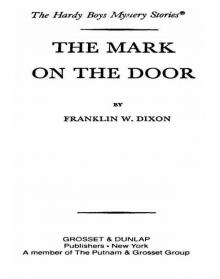 The Mark on the Door
The Mark on the Door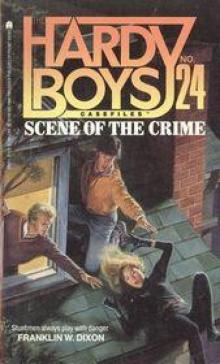 Scene of the Crime
Scene of the Crime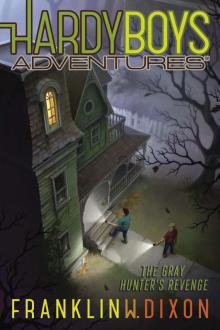 The Gray Hunter's Revenge
The Gray Hunter's Revenge Stolen Identity
Stolen Identity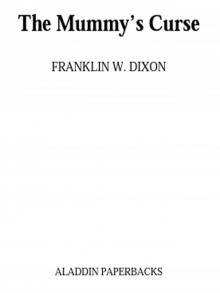 The Mummy's Curse
The Mummy's Curse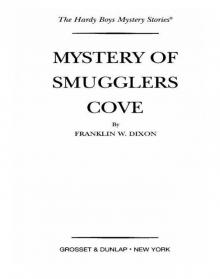 Mystery of Smugglers Cove
Mystery of Smugglers Cove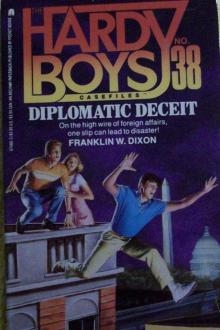 Diplomatic Deceit
Diplomatic Deceit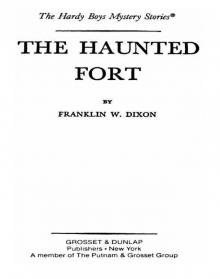 The Haunted Fort
The Haunted Fort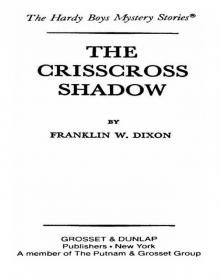 The Crisscross Shadow
The Crisscross Shadow Secret of the Red Arrow
Secret of the Red Arrow Trial and Terror
Trial and Terror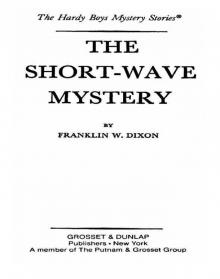 The Short-Wave Mystery
The Short-Wave Mystery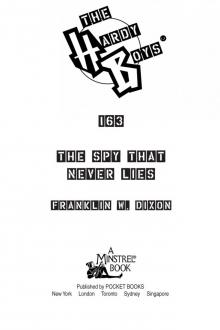 The Spy That Never Lies
The Spy That Never Lies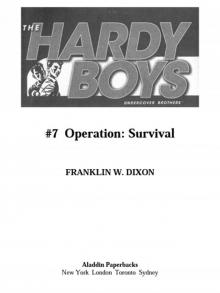 Operation: Survival
Operation: Survival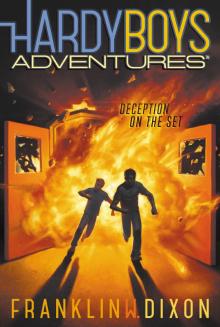 Deception on the Set
Deception on the Set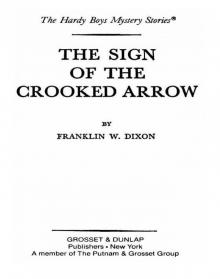 The Sign of the Crooked Arrow
The Sign of the Crooked Arrow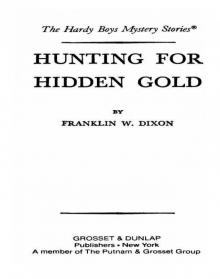 Hunting for Hidden Gold
Hunting for Hidden Gold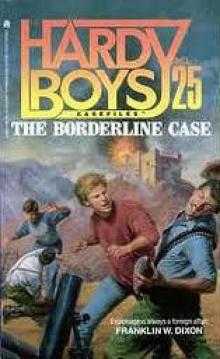 Disaster for Hire
Disaster for Hire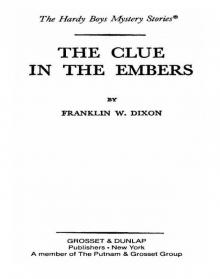 The Clue in the Embers
The Clue in the Embers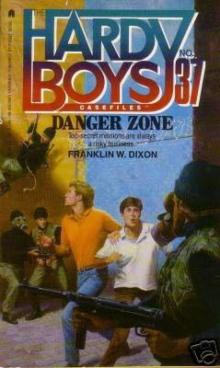 Danger Zone
Danger Zone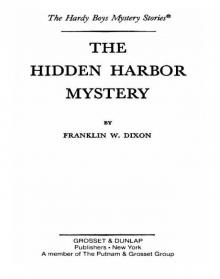 The Hidden Harbor Mystery
The Hidden Harbor Mystery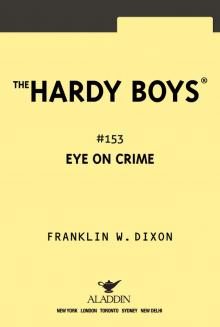 Eye on Crime
Eye on Crime A Game Called Chaos
A Game Called Chaos The Bicycle Thief
The Bicycle Thief The Missing Playbook
The Missing Playbook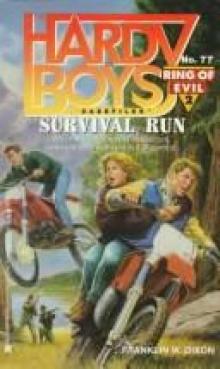 Survival Run
Survival Run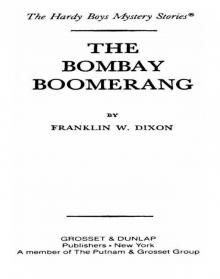 The Bombay Boomerang
The Bombay Boomerang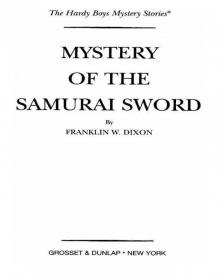 Mystery of the Samurai Sword
Mystery of the Samurai Sword Burned
Burned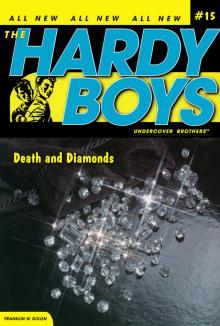 Death and Diamonds
Death and Diamonds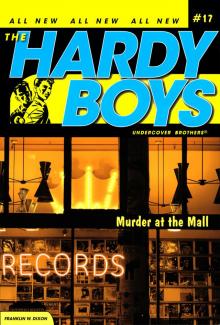 Murder at the Mall
Murder at the Mall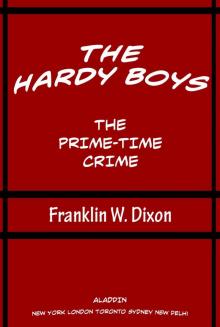 The Prime-Time Crime
The Prime-Time Crime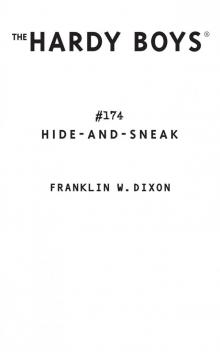 Hide-and-Sneak
Hide-and-Sneak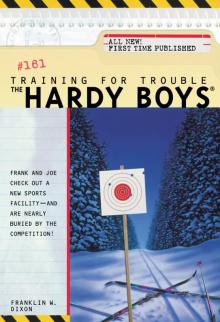 Training for Trouble
Training for Trouble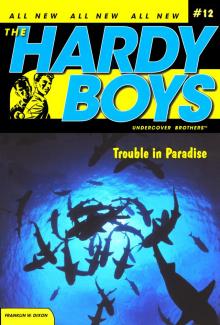 Trouble in Paradise
Trouble in Paradise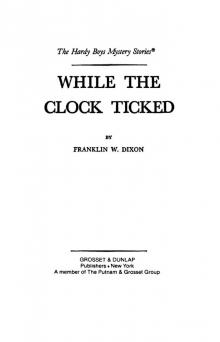 While the Clock Ticked
While the Clock Ticked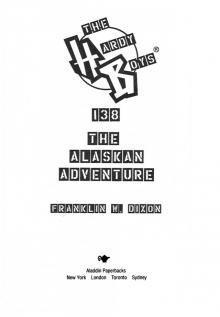 The Alaskan Adventure
The Alaskan Adventure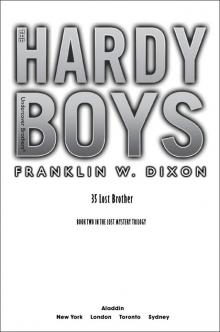 The Lost Brother
The Lost Brother Tunnel of Secrets
Tunnel of Secrets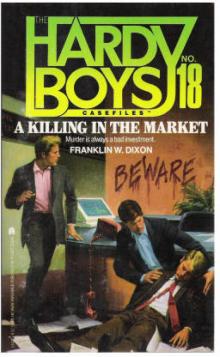 A Killing in the Market
A Killing in the Market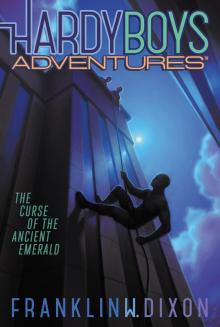 The Curse of the Ancient Emerald
The Curse of the Ancient Emerald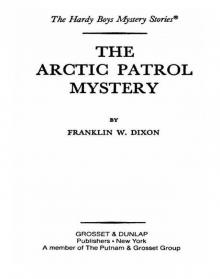 The Arctic Patrol Mystery
The Arctic Patrol Mystery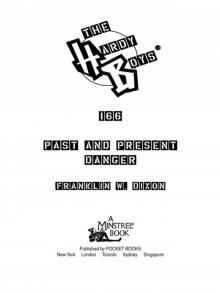 Past and Present Danger
Past and Present Danger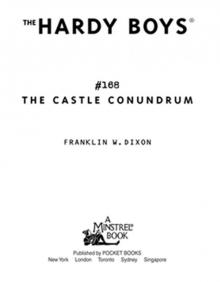 The Castle Conundrum (Hardy Boys)
The Castle Conundrum (Hardy Boys)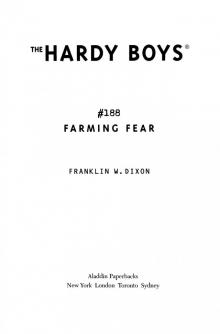 Farming Fear
Farming Fear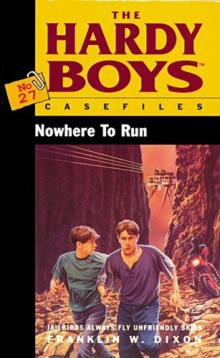 Nowhere to Run
Nowhere to Run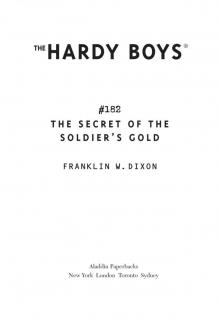 The Secret of the Soldier's Gold
The Secret of the Soldier's Gold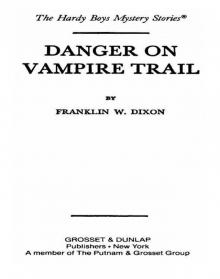 Danger on Vampire Trail
Danger on Vampire Trail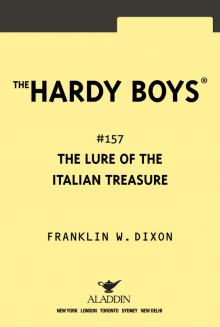 The Lure of the Italian Treasure
The Lure of the Italian Treasure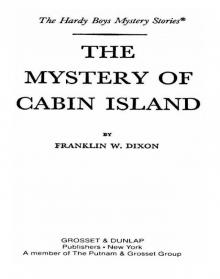 The Mystery of Cabin Island
The Mystery of Cabin Island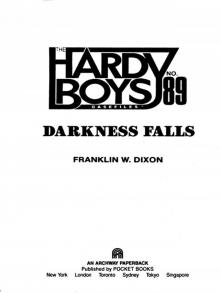 Darkness Falls
Darkness Falls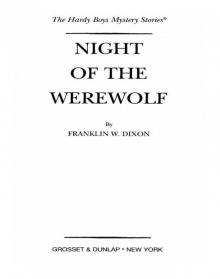 Night of the Werewolf
Night of the Werewolf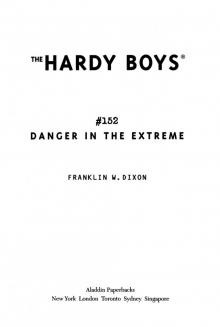 Danger in the Extreme
Danger in the Extreme The Lazarus Plot
The Lazarus Plot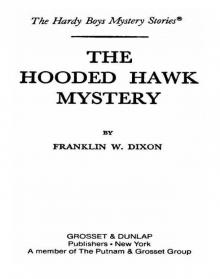 The Hooded Hawk Mystery
The Hooded Hawk Mystery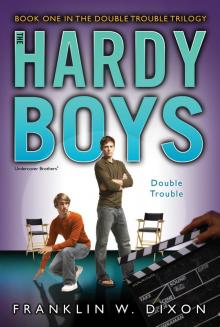 Double Trouble
Double Trouble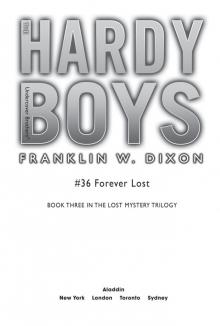 Forever Lost
Forever Lost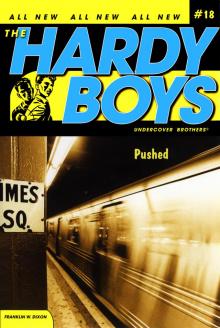 Pushed
Pushed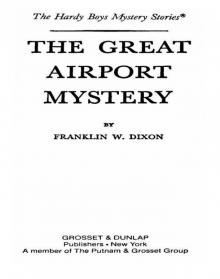 The Great Airport Mystery
The Great Airport Mystery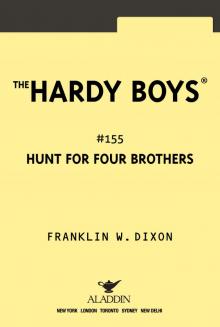 The Hunt for Four Brothers
The Hunt for Four Brothers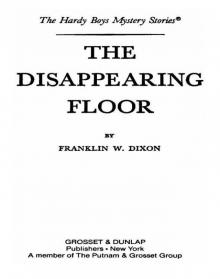 The Disappearing Floor
The Disappearing Floor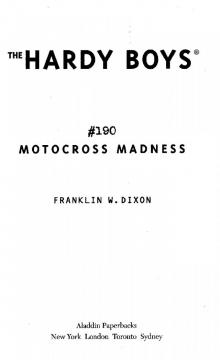 Motocross Madness
Motocross Madness Foul Play
Foul Play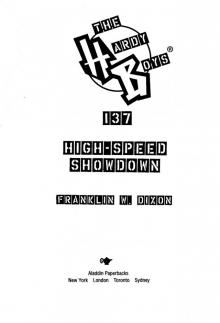 High-Speed Showdown
High-Speed Showdown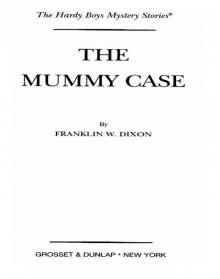 The Mummy Case
The Mummy Case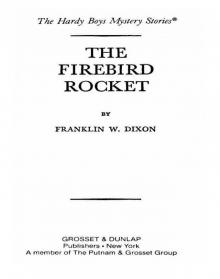 The Firebird Rocket
The Firebird Rocket Trouble in Warp Space
Trouble in Warp Space Ship of Secrets
Ship of Secrets Line of Fire
Line of Fire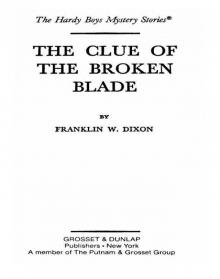 The Clue of the Broken Blade
The Clue of the Broken Blade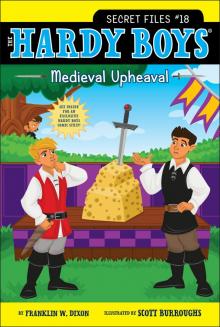 Medieval Upheaval
Medieval Upheaval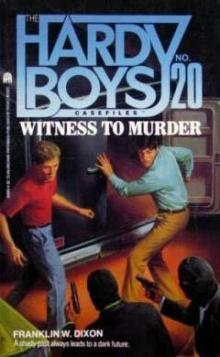 Witness to Murder
Witness to Murder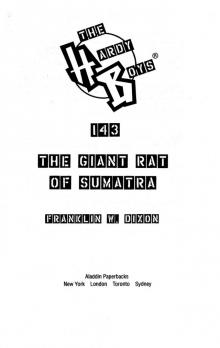 The Giant Rat of Sumatra
The Giant Rat of Sumatra Attack of the Bayport Beast
Attack of the Bayport Beast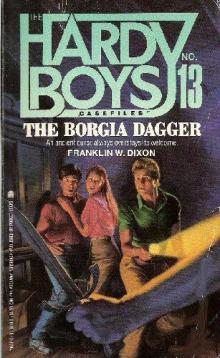 The Borgia Dagger
The Borgia Dagger Scavenger Hunt Heist
Scavenger Hunt Heist No Way Out
No Way Out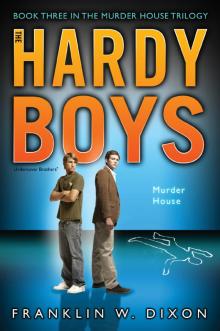 Murder House
Murder House The X-Factor
The X-Factor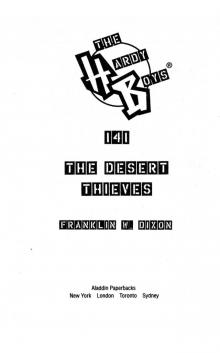 The Desert Thieves
The Desert Thieves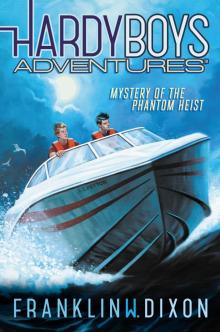 Mystery of the Phantom Heist
Mystery of the Phantom Heist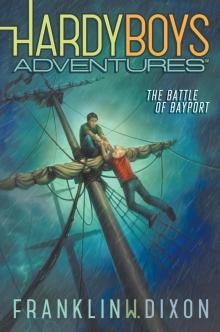 The Battle of Bayport
The Battle of Bayport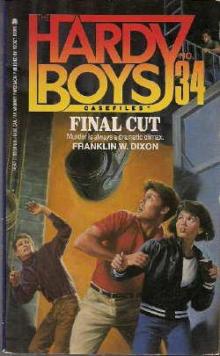 Final Cut
Final Cut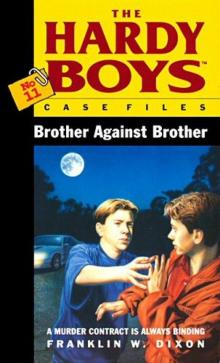 Brother Against Brother
Brother Against Brother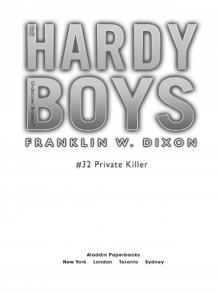 Private Killer
Private Killer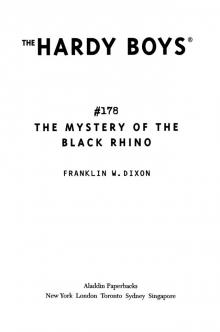 The Mystery of the Black Rhino
The Mystery of the Black Rhino Feeding Frenzy
Feeding Frenzy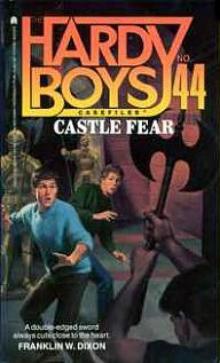 Castle Fear
Castle Fear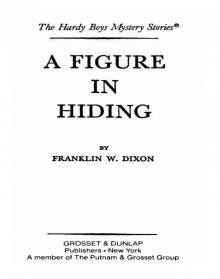 A Figure in Hiding
A Figure in Hiding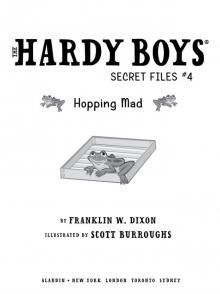 Hopping Mad
Hopping Mad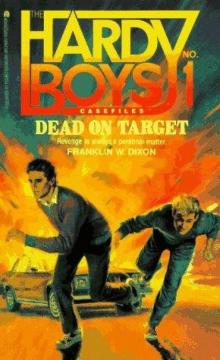 Dead on Target
Dead on Target Skin and Bones
Skin and Bones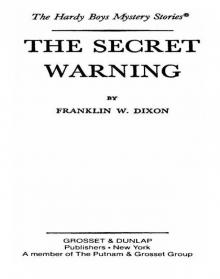 The Secret Warning
The Secret Warning Flesh and Blood
Flesh and Blood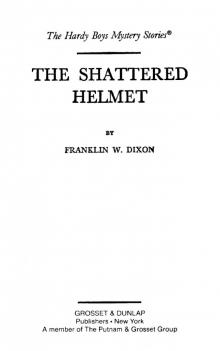 The Shattered Helmet
The Shattered Helmet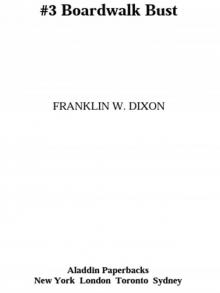 Boardwalk Bust
Boardwalk Bust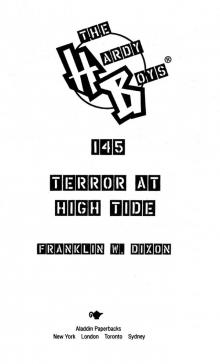 Terror at High Tide
Terror at High Tide In Plane Sight
In Plane Sight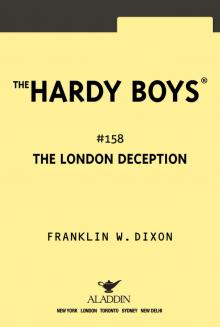 The London Deception
The London Deception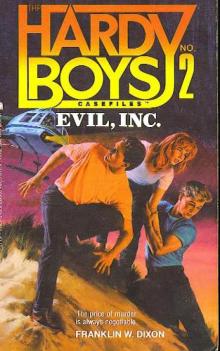 Evil, Inc.
Evil, Inc.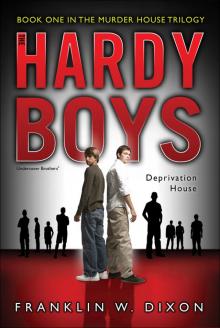 Deprivation House
Deprivation House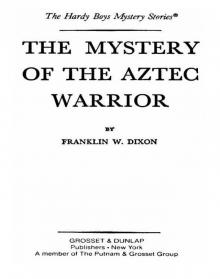 The Mystery of the Aztec Warrior
The Mystery of the Aztec Warrior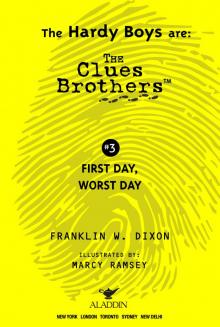 First Day, Worst Day
First Day, Worst Day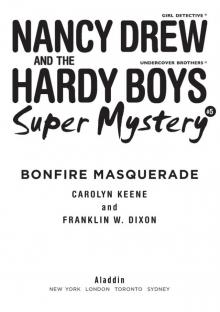 Bonfire Masquerade
Bonfire Masquerade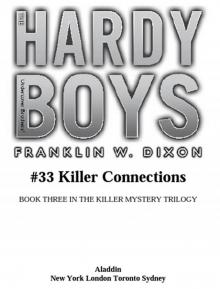 Killer Connections
Killer Connections Strategic Moves
Strategic Moves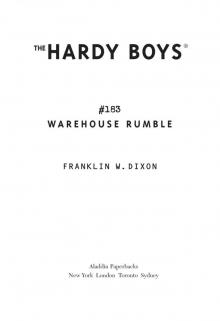 Warehouse Rumble
Warehouse Rumble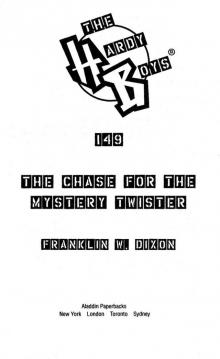 The Chase for the Mystery Twister
The Chase for the Mystery Twister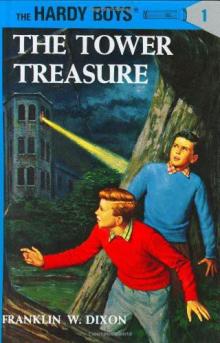 The Tower Treasure thb-1
The Tower Treasure thb-1 The Children of the Lost
The Children of the Lost The Last Laugh
The Last Laugh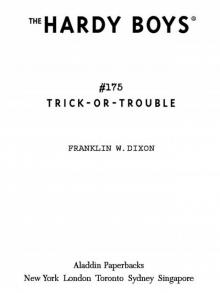 Trick-or-Trouble
Trick-or-Trouble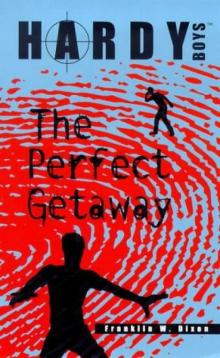 Perfect Getaway
Perfect Getaway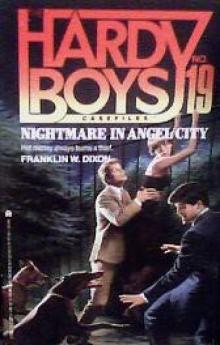 Nightmare in Angel City
Nightmare in Angel City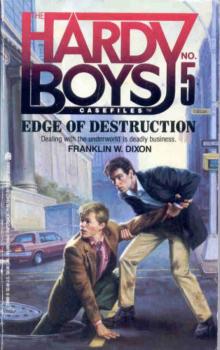 Edge of Destruction
Edge of Destruction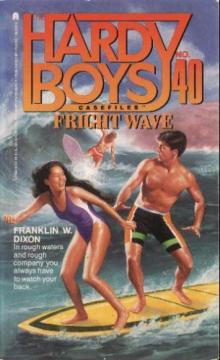 Fright Wave
Fright Wave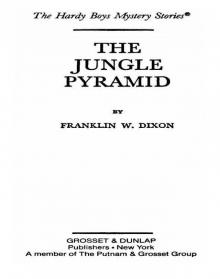 The Jungle Pyramid
The Jungle Pyramid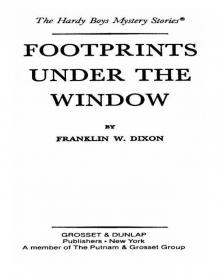 Footprints Under the Window
Footprints Under the Window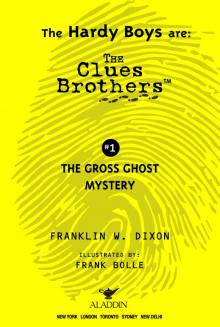 The Gross Ghost Mystery
The Gross Ghost Mystery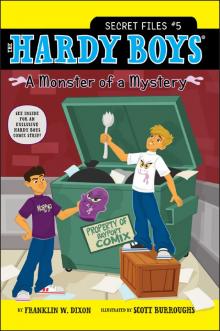 A Monster of a Mystery
A Monster of a Mystery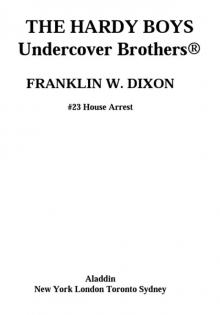 House Arrest
House Arrest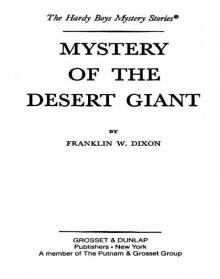 Mystery of the Desert Giant
Mystery of the Desert Giant Talent Show Tricks
Talent Show Tricks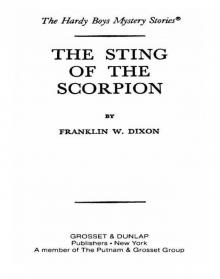 The Sting of the Scorpion
The Sting of the Scorpion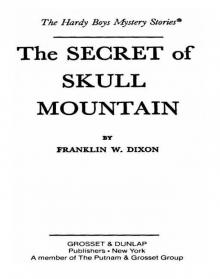 The Secret of Skull Mountain
The Secret of Skull Mountain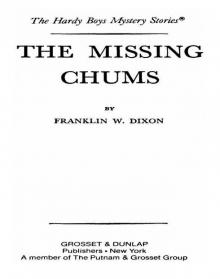 The Missing Chums
The Missing Chums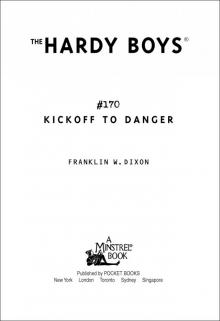 Kickoff to Danger
Kickoff to Danger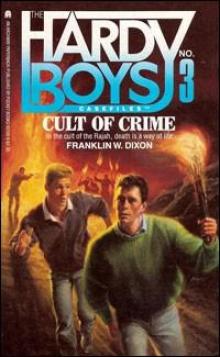 Cult of Crime
Cult of Crime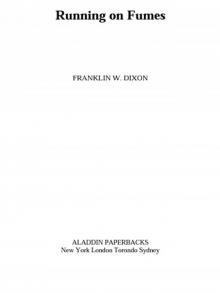 Running on Fumes
Running on Fumes Martial Law
Martial Law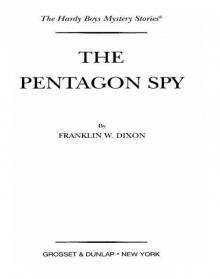 The Pentagon Spy
The Pentagon Spy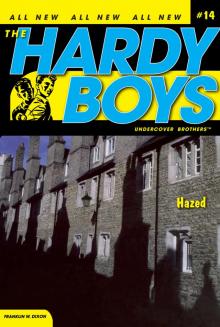 Hazed
Hazed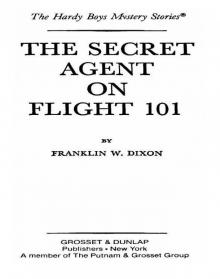 The Secret Agent on Flight 101
The Secret Agent on Flight 101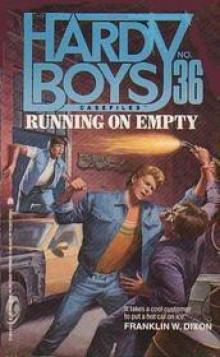 Running on Empty
Running on Empty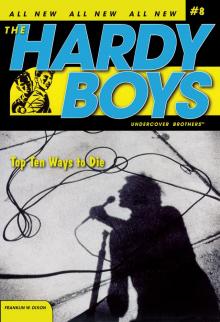 Top Ten Ways to Die
Top Ten Ways to Die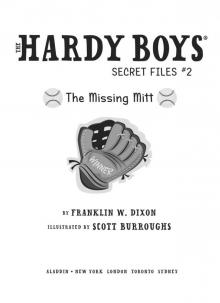 The Missing Mitt
The Missing Mitt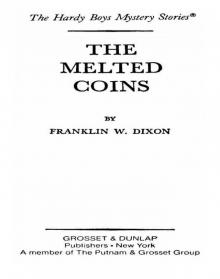 The Melted Coins
The Melted Coins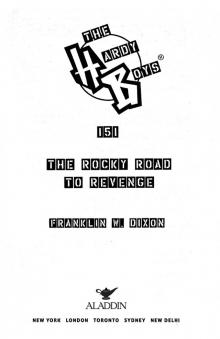 The Rocky Road to Revenge
The Rocky Road to Revenge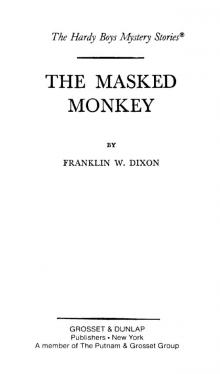 The Masked Monkey
The Masked Monkey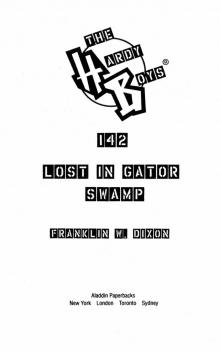 Lost in Gator Swamp
Lost in Gator Swamp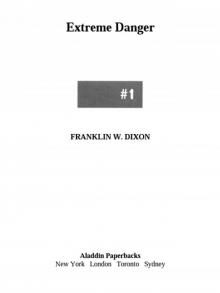 Extreme Danger
Extreme Danger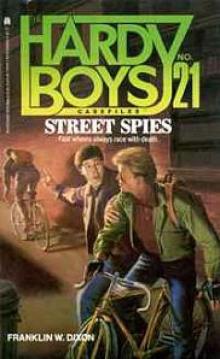 Street Spies
Street Spies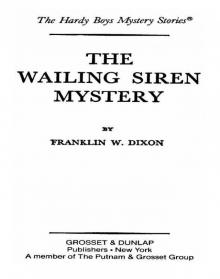 The Wailing Siren Mystery
The Wailing Siren Mystery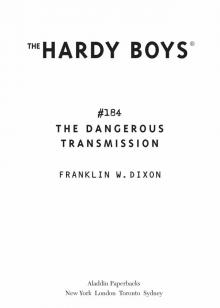 The Dangerous Transmission
The Dangerous Transmission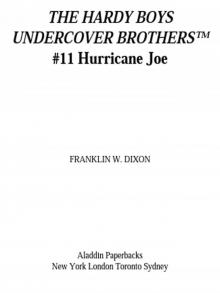 Hurricane Joe
Hurricane Joe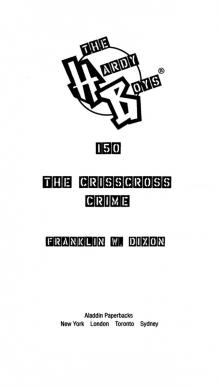 The Crisscross Crime
The Crisscross Crime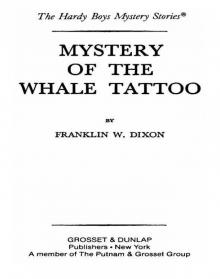 Mystery of the Whale Tattoo
Mystery of the Whale Tattoo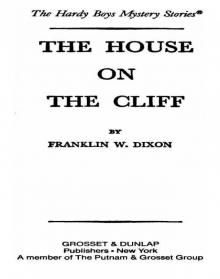 The House on the Cliff
The House on the Cliff Camping Chaos
Camping Chaos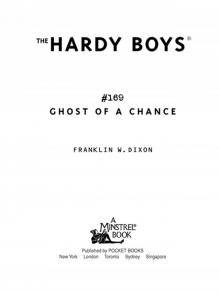 Ghost of a Chance
Ghost of a Chance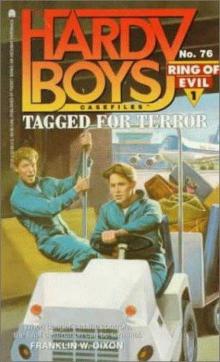 Tagged for Terror
Tagged for Terror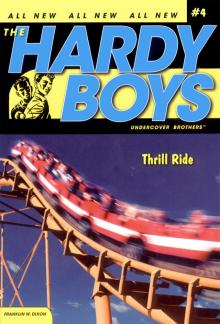 Thrill Ride
Thrill Ride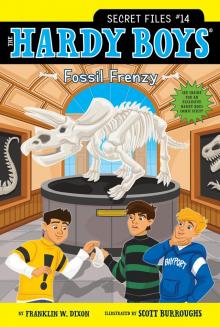 Fossil Frenzy
Fossil Frenzy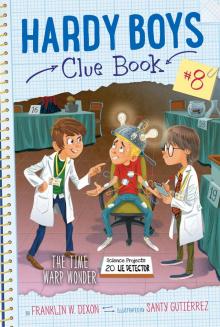 The Time Warp Wonder
The Time Warp Wonder Ghost Stories
Ghost Stories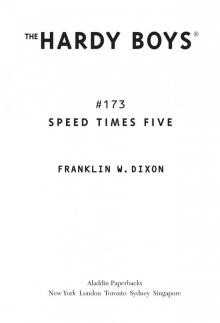 Speed Times Five
Speed Times Five What Happened at Midnight
What Happened at Midnight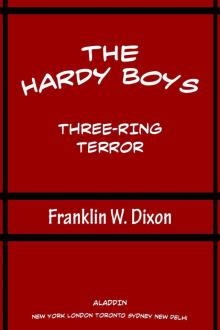 Three-Ring Terror
Three-Ring Terror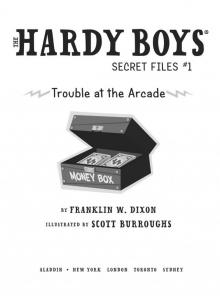 Trouble at the Arcade
Trouble at the Arcade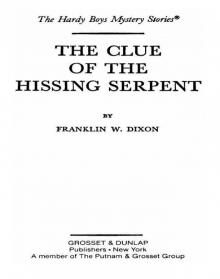 The Clue of the Hissing Serpent
The Clue of the Hissing Serpent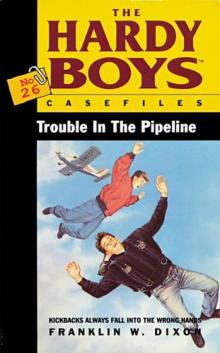 Trouble in the Pipeline
Trouble in the Pipeline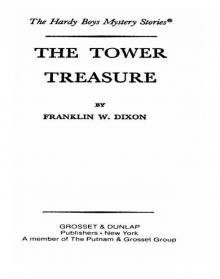 The Tower Treasure
The Tower Treasure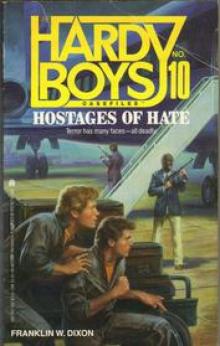 Hostages of Hate
Hostages of Hate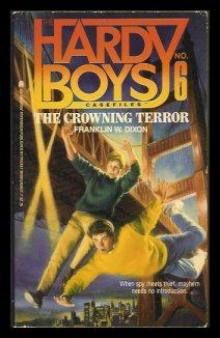 The Crowning Terror
The Crowning Terror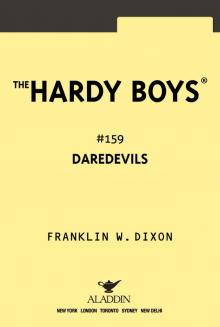 Daredevils
Daredevils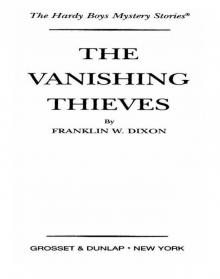 The Vanishing Thieves
The Vanishing Thieves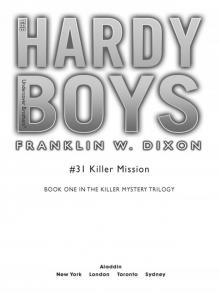 Killer Mission
Killer Mission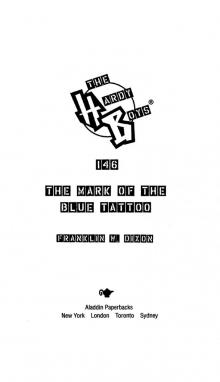 The Mark of the Blue Tattoo
The Mark of the Blue Tattoo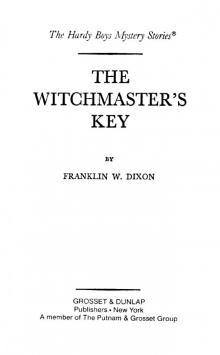 The Witchmaster's Key
The Witchmaster's Key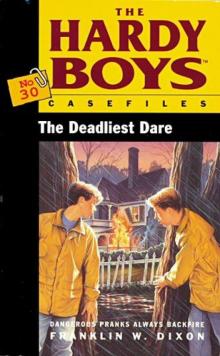 The Deadliest Dare
The Deadliest Dare Peril at Granite Peak
Peril at Granite Peak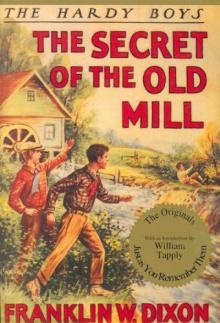 The Secret Of The Old Mill thb-3
The Secret Of The Old Mill thb-3 Rocky Road
Rocky Road The Demolition Mission
The Demolition Mission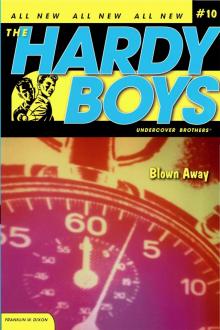 Blown Away
Blown Away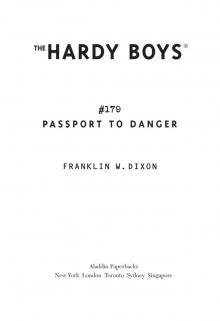 Passport to Danger
Passport to Danger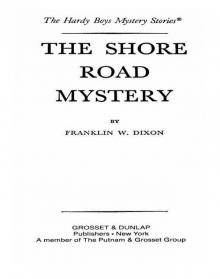 The Shore Road Mystery
The Shore Road Mystery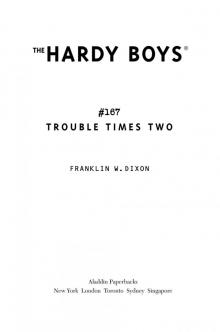 Trouble Times Two
Trouble Times Two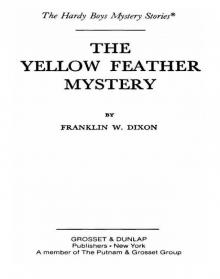 The Yellow Feather Mystery
The Yellow Feather Mystery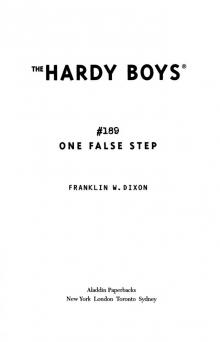 One False Step
One False Step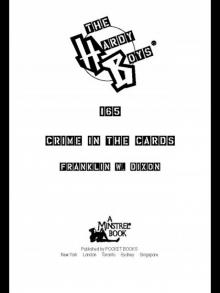 Crime in the Cards
Crime in the Cards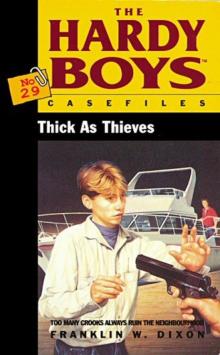 Thick as Thieves
Thick as Thieves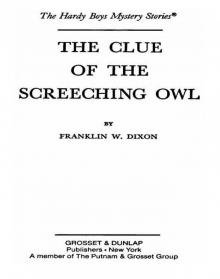 The Clue of the Screeching Owl
The Clue of the Screeching Owl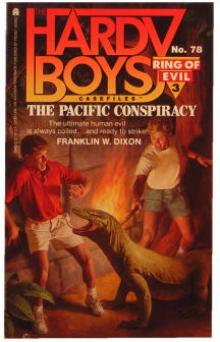 The Pacific Conspiracy
The Pacific Conspiracy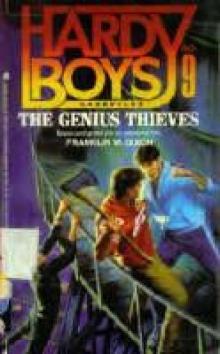 The Genius Thieves
The Genius Thieves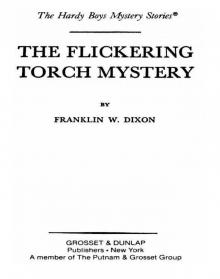 The Flickering Torch Mystery
The Flickering Torch Mystery Into Thin Air
Into Thin Air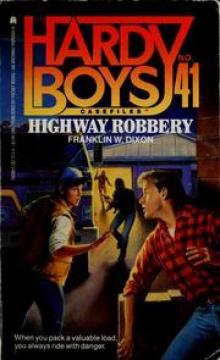 Highway Robbery
Highway Robbery Deadfall
Deadfall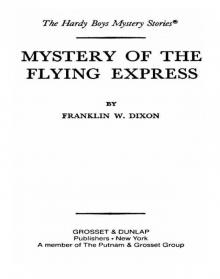 Mystery of the Flying Express
Mystery of the Flying Express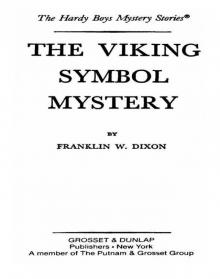 The Viking Symbol Mystery
The Viking Symbol Mystery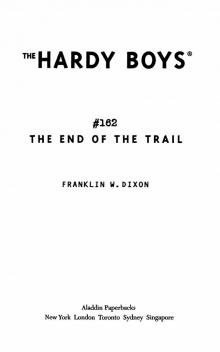 The End of the Trail
The End of the Trail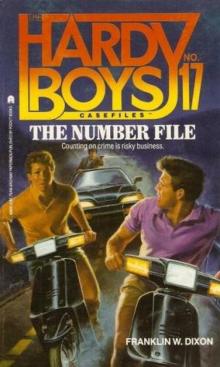 The Number File
The Number File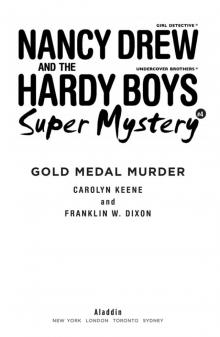 Gold Medal Murder
Gold Medal Murder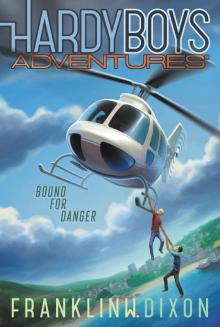 Bound for Danger
Bound for Danger Collision Course
Collision Course The Madman of Black Bear Mountain
The Madman of Black Bear Mountain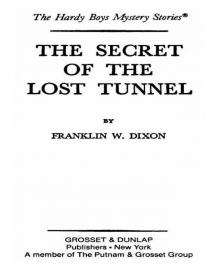 The Secret of the Lost Tunnel
The Secret of the Lost Tunnel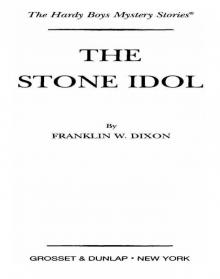 The Stone Idol
The Stone Idol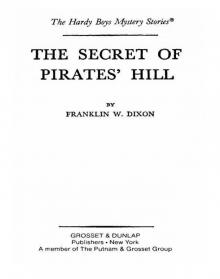 The Secret of Pirates' Hill
The Secret of Pirates' Hill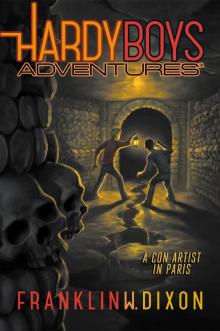 A Con Artist in Paris
A Con Artist in Paris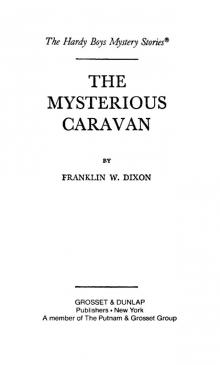 The Mysterious Caravan
The Mysterious Caravan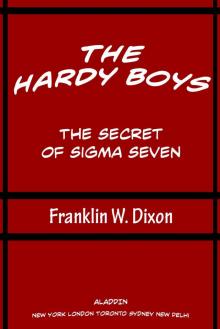 The Secret of Sigma Seven
The Secret of Sigma Seven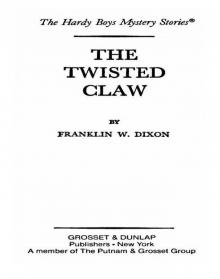 The Twisted Claw
The Twisted Claw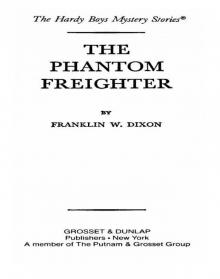 The Phantom Freighter
The Phantom Freighter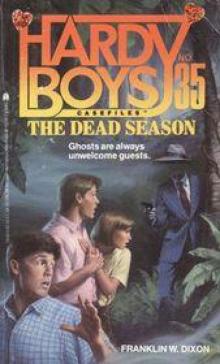 The Dead Season
The Dead Season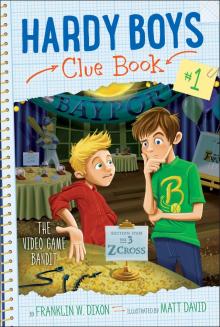 The Video Game Bandit
The Video Game Bandit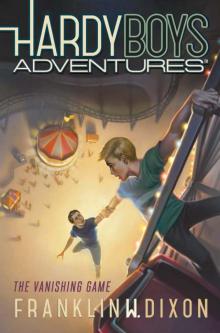 The Vanishing Game
The Vanishing Game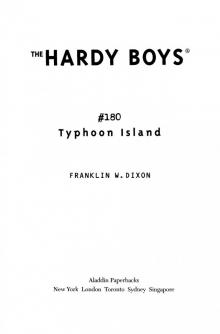 Typhoon Island
Typhoon Island